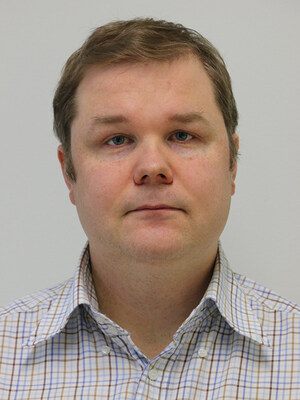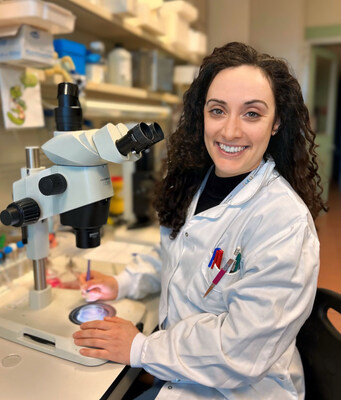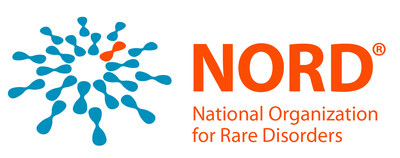Over $80K in Funding Supports Promising Studies Targeting Two Critically Underserved Conditions
DANBURY, Conn., Sept. 8, 2025 /PRNewswire/ -- The National Organization for Rare Disorders (NORD®), in a move to accelerate breakthroughs for rare diseases lacking effective treatments, has awarded more than $82,000 in seed funding to two international scientists to support cutting-edge research in systemic and metabolic disorders.
By targeting early-stage research with high potential for impact, NORD's seed grants aim to jumpstart scientific discovery and pave the way for larger-scale investments. These competitive awards are designed to spark novel ideas, generate critical preliminary data, and drive momentum in areas where patients often have few — if any — therapeutic options.
The 2025 recipients of NORD's seed grants are:
- Dr. Ilkka Paatero, senior researcher and head of the Zebrafish Core Facility at the University of Turku and Abo Akademi University in Turku, Finland, was awarded $40,000 to advance research in Levy-Yeboa syndrome (LYS). LYS is a rare genetic condition characterized by a combination of muscular and bone abnormalities, skin (dermatological) issues, hearing loss, and gastrointestinal distress.
- Dr. Margherita Romeo, senior scientist at the Instituto di Ricerche Farmacologiche Mario Negri in Milan, Italy, was awarded $42,000 to advance research in amyloidosis, usually a multisystem disease resulting in a wide spectrum of clinical presentations.
"Congratulations to this year's award recipients, Dr. Paatero and Dr. Romeo, whose research represents meaningful progress for the many individuals affected by Levy-Yeboa syndrome and amyloidosis," said Tracey Sikora, NORD Vice President of Research and Clinical Programs. "We're honored to support innovative research that addresses the vast and urgent unmet needs of those with rare diseases. We look forward to the insights and impact their work will have on advancing research for these two patient populations."
Paatero's research project, titled "Zebrafish Model of Levy-Yeboa Syndrome," aims to generate and analyze a genetic zebrafish model for LYS. The anticipated outcomes of the study are: gaining novel insights into the disease mechanism, identification of potential drug targets, and establishing a disease model suitable for testing drugs. Ultimately, this research aims to improve understanding and treatment of Levy-Yeboa syndrome.
Romeo's study, titled "Decoding Cardiac Toxicity in AL Amyloidosis: Insights from a Novel Transgenic C. elegans Model," investigates how light chains cause heart damage in AL amyloidosis even before amyloid deposition occurs. This study uses Caenorhabditis elegans, a small nematode (roundworm) commonly used in medical research because many of its biological systems are similar to those of humans. Remarkably, the worm's pharynx functions like the human heart, allowing researchers to model cardiac damage in a simple and cost-effective way. By understanding how light chains affect this "ancestral heart," the study aims to uncover early molecular events of the disease and identify new targets for treatments that could protect the heart in people living with this rare and life-threatening condition.
NORD's Rare Disease Research Grant Program provides funding to qualified researchers to support new or existing scientific research studies or clinical trials with the potential to attract larger funding from agencies like the National Institutes of Health (NIH), Food and Drug Administration (FDA), or corporate sponsors.
Since 1989, NORD has awarded more than $9 million in research grants to advance scientific discovery for rare diseases that lack treatment and funding. With fewer than 5% of the approximately 10,000 known rare diseases having an FDA-approved therapy, and the millions of dollars required to develop a prescriptive medication, early-stage funding plays a critical role in unlocking progress. NORD's grant program has jump-started critical rare disease research, supported numerous peer-reviewed publications, and contributed to the development of two FDA-approved treatments.
To learn more, visit https://rarediseases.org/advancing-research/research-grant-programs/.
About the National Organization for Rare Disorders
Founded in 1983, the National Organization for Rare Disorders (NORD®) is a leading independent, nonpartisan, nonprofit patient advocacy organization dedicated to improving the health and lives of over 30 million Americans living with rare diseases. In partnership with more than 350 disease-specific member patient organizations, NORD drives progress in rare disease research, care, and policy. Learn more at https://rarediseases.org/
![]() View original content to download multimedia:https://www.prnewswire.com/news-releases/nord-awards-2025-seed-grants-to-propel-breakthroughs-in-rare-disease-research-302549429.html
View original content to download multimedia:https://www.prnewswire.com/news-releases/nord-awards-2025-seed-grants-to-propel-breakthroughs-in-rare-disease-research-302549429.html
SOURCE National Organization for Rare Disorders (NORD®)








